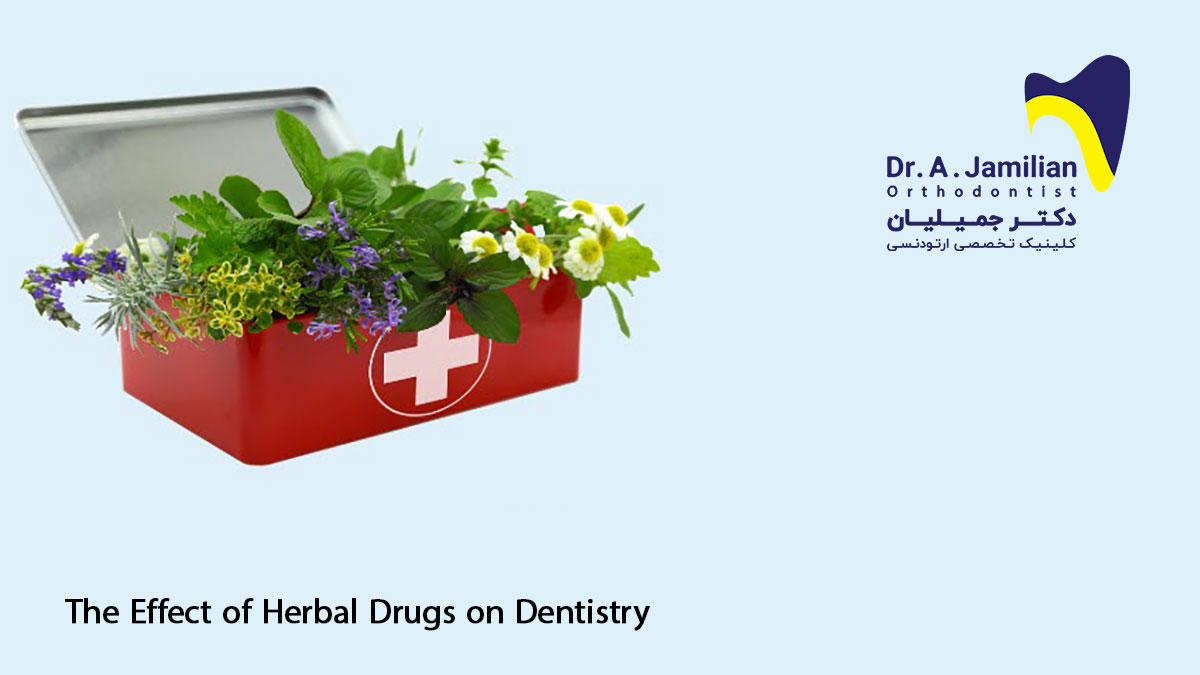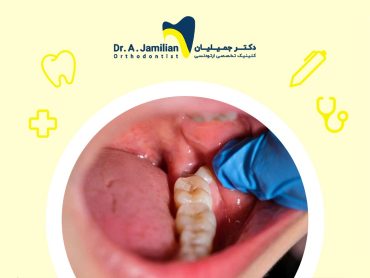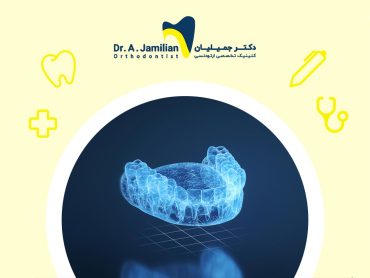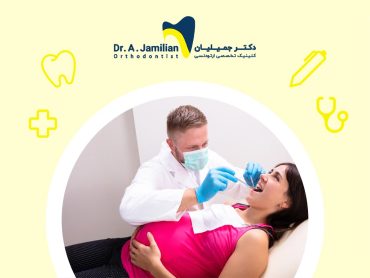Nowadays, herbal medicines are widely used in the treatment and prevention of oral diseases. Some herbs have been also used as a mouthwash or ointments to prevent tooth decay and treat aphthous stomatitis, herpes, and other oral diseases:
Herbal remedies for aphthous stomatitis
Aphthous stomatitis is a common condition characterized by the repeated formation of painful ulcers mainly on the mobile mucosa of the mouth (e.g. the tongue and the inner part of the lips and cheeks). These circular, shallow, and painful ulcers rarely appear on the soft or hard palate and gums.
1-Chamomile
Medicinal form of chamomile: 15-ml solution
Indications: Chamomile solution is used to treat inflammation of the oral mucosa and other parts of the gastrointestinal tract.
Compounds: Chamomile solution is made from the hydro-alcoholic extract of the German chamomile plant. Every 100 ml of the solution contains 10 mg of chamazulene and at least 2 mg of apigenin.
Active ingredients: Essential oils such as chamazulene, bisabolol, and the flavonoid apigenin
Dosage: 30 drops in a cup of lukewarm water three times a day for adults and 10-20 drops in a cup of lukewarm water three times a day for children.
As a mouthwash: Mix a tablespoon of the solution with half a glass of lukewarm water and gargle three times a day.
Side effects: It is contraindicated in people with chamomile allergy and patients with asthma. Although the safety of this product during pregnancy and lactation has not been proven, its advantages must be weighed against its disadvantages.
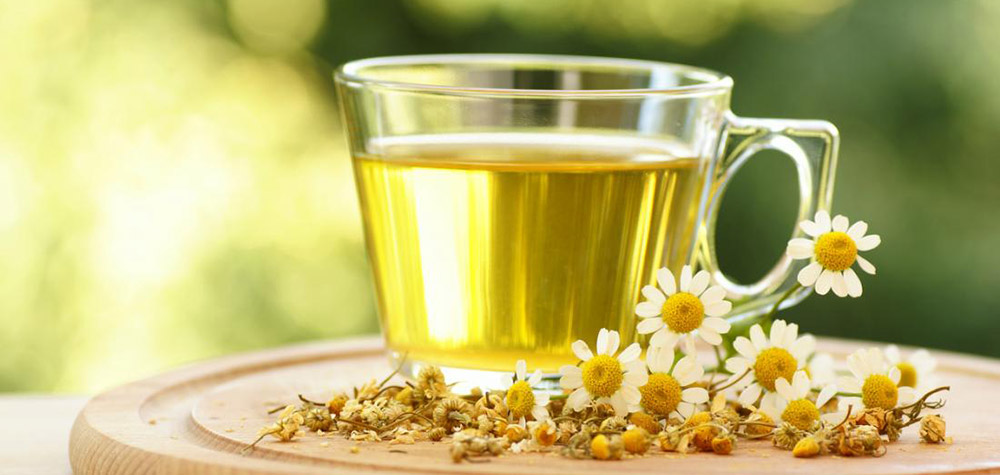
2-Myrtex
Medicinal form: 15-ml solution
Indications: Myrtex solution is used to treat minor cases of aphthous stomatitis.
Compounds: This product contains 57.7% of the essential oil of myrtle.
Active ingredients: Essential oils such as 1, 8-cineole, alpha-Pinene, myrtenol, limonene, and myrtol
Dosage: Pour 10 drops of the solution on a piece of cleansing tissue and apply to the lesions for 30 seconds 5-6 times a day.
Precautions: This product may cause allergic reactions. Since myrtle extract causes laryngeal and bronchial spasms, asthma-like attacks, and even respiratory failure in children, this product should be cautiously applied for children.
Side effects: Oral administration of myrtle causes nausea, vomiting, and diarrhea in rare cases. This product can also cause laryngeal and bronchial spasms, asthma-like attacks, and even respiratory failure in infants and children.
Contraindications: The oral administration of this product is contraindicated in patients with gastrointestinal inflammation, cholangitis, and liver disease.
Contraindications in pregnant or lactating women: Although the safety of this product during pregnancy and lactation has not been proven, its advantages must be weighed against its disadvantages.
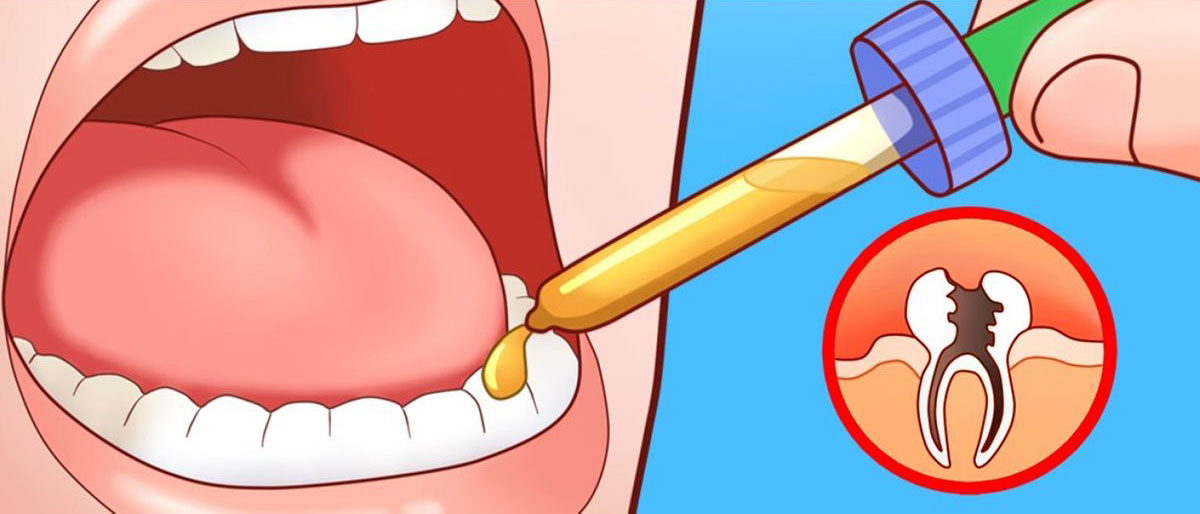
Herbal remedies for herpes
Oral herpes is an infection caused by the herpes simplex virus. The virus causes painful sores on your lips, gums, tongue, palate, and inside your cheeks. As the name implies, these sores usually appear after a period of fever or cold. Primary sores appear as a cluster of blisters on a red base. More details about this medicinal plant are provided below.
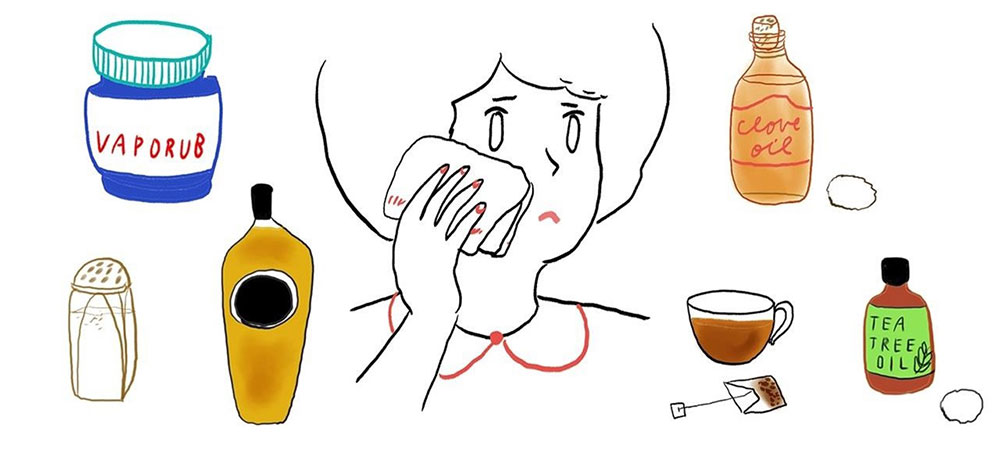
1-Melissan
Medicinal form: 5-gram topical gel
Indications: Melissan gel is used as an antiviral drug in the treatment of herpes
Compounds: Melissan gel contains 1% dry extract of Dracocephalum.
Active ingredients: Essential oils such as citronellal, citral, and geraniol and polyphenols such as rosmarinic acid and caffeic acid
Dosage: Apply the gel to the affected area 2-3 times a day
Side effects: This product may cause allergic reactions
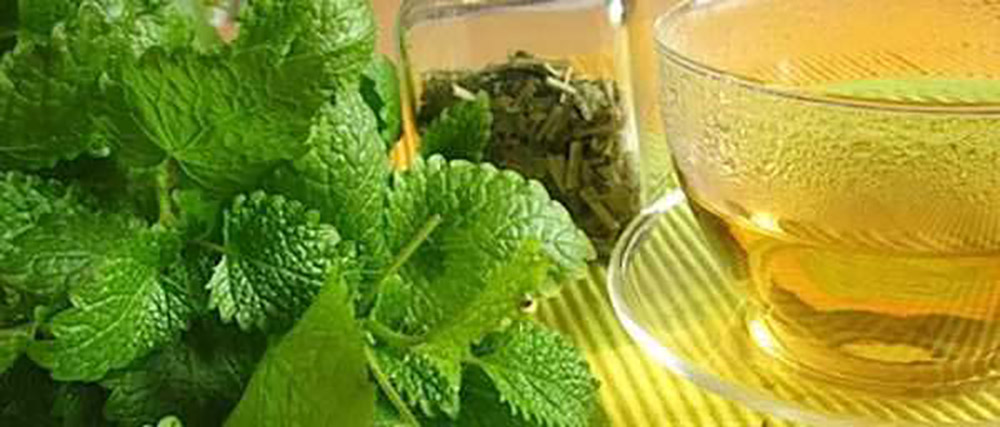
2-Persica:
Medicinal form: 30-ml solution
Persica drops are used in the following cases:
- Prevent increased plaque on the teeth
- Tooth decay, bleeding and gum disease
- Disinfectants
- Pain reliever for toothache and gums
Ingredients: Persica drops are composed of hydroalcoholic extracts of the following plants:
- 30% toothbrush plant
- Yarrow 25%
- Mint 45%
Active ingredients: Calcium, fluoride, chloride, isocyanate compounds, tannins, essential oils such as menthol and azulene, and acyl alkaloids.
Dosage: Rinse your mouth with 10 to 15 Persica drops in 15 ml of water (2-3 tablespoons) for 20 seconds 2 times a day in order to prevent tooth decay and oral diseases.
Rinse your mouth with 10 to 15 Persica drops in 15 ml of water (2-3 tablespoons) for 20 seconds 3 to 5 times a day in order to treat oral diseases and prevent bleeding gums.
Rinse your mouth with 10 to 30-40 Persica drops in 15 ml of water (2-3 tablespoons) for 20 seconds 2 to 4 times in order to prevent bleeding and infections after tooth extraction and oral surgery.
Side effects: This product may cause allergic reactions in people who are sensitive to mint and yarrow. Although the safety of this product during pregnancy and lactation has not been proven, its advantages must be weighed against its disadvantages.
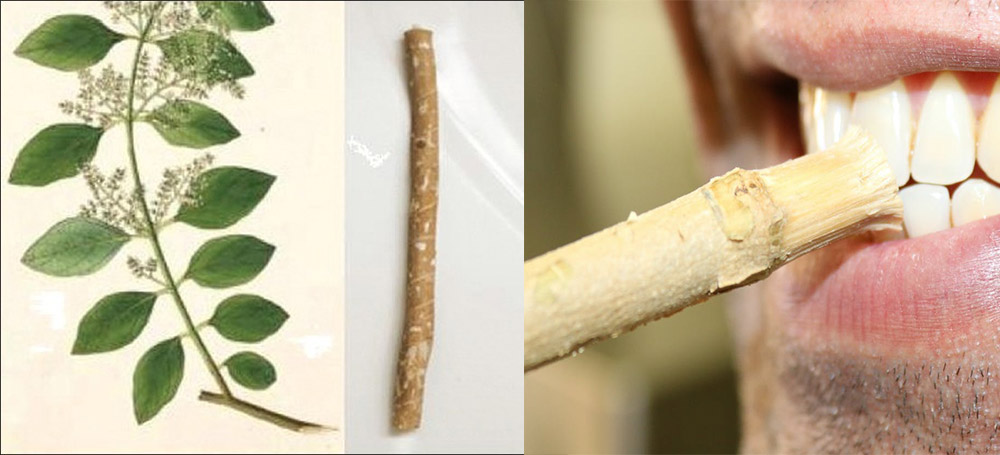
3-Myrtoplex
Medicinal form: 5-gram ointment
Indications: This product has antiviral properties against herpes type 1 (HSV-1, or oral herpes) and herpes type 2 (HSV-2, or genital herpes) and is used to treat skin herpes in different areas of the body and around the vagina.
Compounds: Myrtoplex ointment contains 57.7% of the essential oil of myrtle.
Active ingredients: Tannins, polyphenols, essential oils such as myrtol and cineole, and flavonoids.
Dosage: Apply a thin layer of the ointment to ulcers and massage gently 3-5 times a day.
Contraindications in pregnant or lactating women: Although the safety of this product during pregnancy and lactation has not been proven, its advantages must be weighed against its disadvantages.
